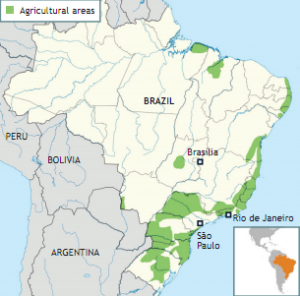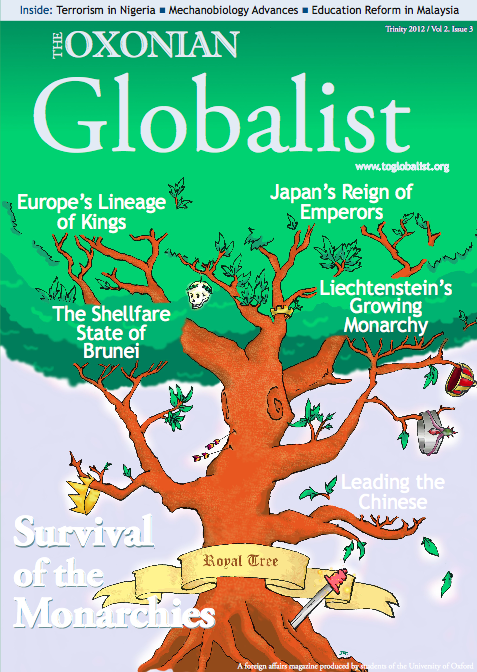ON May 24th 2011, José Cláudio Ribeiro da Silva, a grassroots environmental activist in the Amazonian state of Pará, was ambushed and killed by two gunmen while riding home on a motorcycle with his wife. At the scene, 15 bullet cases were found, and Ribeiro was reported to have had his ear cut off as a gruesome trophy.
His fate is not uncommon in the struggle for land in rural Brazil, where those who fight for the redistribution of land or the protection of the forest face substantial risks. A year before his death, Ribeiro spoke about the threats made against him: “I will protect the forest at all costs. That is why I could get a bullet in my head at any moment – because I denounce the loggers.” Two other people, Eremilton Pereira dos Santos and Adelino Ramos, were murdered shortly after, also by hired killers.
Over 1,000 rural peasants and activists have been killed in the Amazon in the last 20 years. In 2008, the Pastoral Land Commission (CPT), a Brazilian human rights organisation, gave a list of 1,800 names of people who have received credible death threats in recent years. Dozens of those on the list have now been killed, and many others have survived assassination attempts.
It is largely because of an ineffective and corrupt police force that these conflicts often end in murder. Very few of the killers have been prosecuted, and the loggers, ranchers and estate owners behind the murders are rarely brought to justice. In response to the four killings, President Dilma Rousseff promised more resources to protect activists and combat the perceived lawlessness of rural Brazil, attempting to end “an era of impunity for illegal loggers, ranchers and agribusiness.”
From the Ground Up
This violence emerges from one of the most contentious issues within Brazilian society: land reform. Brazil is a country where 1% of the population own roughly half of the arable land. Large landowners and agribusiness corporations create vast
plantations, industrial farms, and, in the Amazon, are responsible for the cutting down of trees and destruction of the forest to create cattle ranches. These agribusinesses use vast amounts of Genetically Modified Organisms and pesticides, all to grow mono-crops primarily for export, such as soy, sugar cane and coffee.
A key group in this struggle is the Movimento dos Trabalhadores Rurais Sem Terra (MST), or the Landless Workers’ Movement, who are the largest social movement in Brazil, with 1.6 million members. Their members largely consist of the rural poor, such as landless peasants and labourers. Their lack of education and colour of their skin often place them within the most marginalised strata of Brazilian society. They seek downward land redistribution, exploiting a passage in the 1988 Constitution, which states that land not being used for social good may be acquired by the government and passed on to others.
They operate through large-scale occupation of ranches and farms, setting up makeshift camps and remaining there, against the intimidation and brutality of the landowners and police, until they acquire the title to the property. They are said to have redistributed 35 million acres of land, and settled 400,000 families.
They are committed to ethical and sustainable use of the land, creating small scale co-operative or family farms, which grow natural food for domestic consumption. They have also set up thousands of schools and health clinics, as well as a university and a natural medicine factory.
They emphasise the importance of keeping the rural population out of the cities and preventing further large-scale migration to urban slums, which are often built precariously on any available space. The dangers of this were made apparent earlier this year, when nearly 1,000 people were killed in Rio de Janeiro by large mudslides that destroyed slums built on steep hills.
Organising for Rights
For the people involved, the importance of being in groups such as the MST cannot be underestimated. Through these sorts of organisations, people who would otherwise be working in slave-like conditions for industrial farms or living in the slums of the major cities are given opportunities for acquiring land, education and healthcare. These people gain rights and dignity that they would otherwise never have.
Grassroots movements such as the MST and activists such as Ribeiro are crucial to democratisation and reform in Brazilian society. Those who would otherwise be voiceless are empowered through direct action, which includes occupying land and buildings, blockading highways, and marching from city to city.
While the former president, Luiz Inácio Lula da Silva, was often celebrated as a champion of social welfare, land reform remained one of his less progressive policies. While traditionally seen as an ally of those who sought land reform, Lula is now perceived by the MST to have taken sides with the large landowners and agribusinesses, by helping to considerably expand their practices throughout Brazil.
Between 2003 and 2007, state support for the rural elite was seven times higher than that offered to family farmers, even though the latter represented 87% of the work force and produced the bulk of domestic food consumption. A leader of the MST is reported to have said that their former friend, Lula, “has now become a friend of our enemies.” His successor Dilma is also seen to have inherited this particular mantle.
Brazil’s Tensions
While programs such as Bolsa Família and Fome Zero have helped to raise millions out of poverty and provide them with basic security, groups such as the MST argue that they do not provide the structural reform that is necessary to combat the extreme inequality, exclusion, division and racism that is present in the old structures of Brazilian society. Brazil’s economic successes have helped to turn it into one of the world’s most powerful economies, but soaring GDP has not solved the country’s social problems. Instead, the MST and others would argue that it has merely benefited a select elite.
This sort of activism marks the tensions within Brazilian society. Other examples of class conflict involve street gangs, drugs and violence. It is important that grassroots movements continue to push for environmentally and socially sustainable use of the land, protecting the forests and providing dignity and security to the poorest and most marginalised Brazilians.




